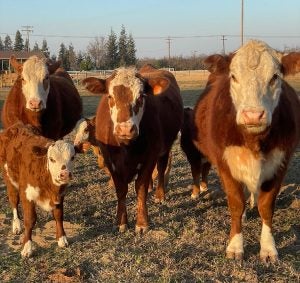Agriculture advocacy can sometimes feel like walking on thin ice. We never know what messaging will resonate with consumers, much less if something we feel passionate about will offend someone and prevent an open conversation from being had.
As advocates, we have to understand that the way we speak and communicate with others should not be the same as everyone else. How are we to reach the diverse consumer base we have if we all tell the exact same story?
We should be respectful of the fact that not everyone has the same perspective, and we should refrain from preaching or criticizing too harshly about the dos and don’ts of advocacy to others who are simply trying to share their journey in agriculture. That’s why I no longer use the term “Eat Beef” in my advocacy. But it’s not that I don’t approve of people using it (heck, my social media channel is called Girls Eat Beef Too) — I simply feel that I want to be more effective in my communication, and this is what I have chosen to change about my messaging.
Firstly, I know this may stir up some impassioned feelings. “Eat Beef” isn’t derogatory, and certainly isn’t offensive by any stretch of the imagination. It just simply doesn’t fit with my narrative as an advocate anymore, and here is why:
I didn’t eat meat a lot growing up. I ate it because my mom or dad cooked it, but I definitely didn’t love the taste of meat when I was younger. Even still, I have days when I don’t want meat. I want veggies and rice, or I just want shrimp or other proteins. As a beginner rancher and beef advocate, ironically, I don’t always have beef on my plate.

Another reason I have is that some families don’t have access to the beef that I do or that you do. There are a lot of reasons a mom, or a single college guy, doesn’t go out and buy beef for meals. Maybe it’s too expensive; maybe they don’t have the means to cook it properly; maybe they can only afford Top Ramen this week; or maybe their kids won’t eat it and food waste is a real issue, so why deal with it?
We don’t know our consumers’ life stories. We assume everyone eats beef like we do. But, that’s completely wrong.
To me, using the phrase “Eat Beef” feels like a directive. It puts pressure on consumers to buy beef because that’s the only way they can support the industry. It makes it seem like that’s the only good option they have at the grocery store. It may place shame on people for their choices that they are completely free to make — something activists like to do to meat eaters, and I don’t want to stoop to their level.
Do consumers actually feel this way? Maybe not. But I don’t want to risk chasing away a perfectly fine opportunity to have a productive dialogue with someone simply because I told them to eat the protein of my choosing. There is already enough disconnect between the producer and consumer that I don’t want to muddy the waters any further.
Do I want you to eat beef? Yes! Absolutely! But, if you don’t want to eat it, then I won’t dictate your diet. Do I hope you support our community even if you don’t eat beef? Yes … this is something I do want to push for more. I want more people to support other people’s choices, even if it is not one they would personally make.
If you are passionate about telling people to “Eat Beef,” then, by all means, don’t stop it because of this article (I am not the beef advocacy police), but I hope this helps some people to understand my perspective and why I am personally choosing to remove it from my messaging.
Markie Hageman majored in agribusiness at Fort Hays State University. She is actively involved in her state Cattlemen’s Association, Young Farmers chapter, and National Cattlemen’s Beef Association. Her AGDAILY.com articles can be found here.



